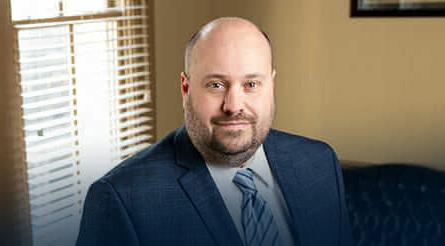Medicare
Don’t Count on Medicare to Pay for Your Long-Term Nursing Home Care
If you or a loved one is covered by Medicare, you have limited benefits to help you pay for a stay at a nursing home or other certified skilled nursing facility. Medicare won’t pay for long-term care, so the period of time covered is limited. If you or a family member is trying to use Medicare to pay for a stay in a nursing home, we can help you.
Medicare is a federal insurance program that helps pay for hospitalization (Part A) and care by physicians (Part B); there’s also the Medicare Advantage program (Part C) and coverage of prescriptions (Part D). Almost everyone who pays the FICA withholding tax out of their paychecks will receive Social Security and will be eligible for Medicare supplement insurance. Medicare coverage starts at age 65 (or two years after someone starts collecting Social Security disability benefits) no matter the Social Security retirement age or whether someone retires early.
Medicare payment for nursing home care
Medicare Part A may cover skilled nursing care in a nursing home as long as it’s medically necessary (for medical reasons you’re too healthy to stay in a hospital but not healthy enough to go back home). Most nursing home care is considered custodial care (such as help with bathing or dressing), which is not covered by Medicare.
Depending on the circumstances of your admission to a nursing home, you may not qualify for any Medicare benefits. A Medicare-eligible person must be admitted as an inpatient to a hospital for three days and two nights and receive a rehabilitative discharge before coming to the nursing home within thirty days of that discharge. Medicare won’t cover nursing home care if the person was seen in the hospital as an outpatient, was there just for observation or goes directly from their residence into a nursing home.
You’re an inpatient when you’re formally admitted to the hospital with a doctor’s order. A decision for inpatient hospital admission is based on your doctor’s judgment and your need for medically necessary hospital care. It’s generally appropriate if you’re expected to require at least two nights of care.
If the person is eligible for Medicare coverage at a nursing home, it will fully pay for up to twenty days of care; then the resident may have partial coverage up through day one hundred depending on whether the patient is improving. During that second period, the resident has a daily co-pay of $167.50. Thereafter, there is no Medicare coverage for a nursing home stay.
Additional conditions on Medicare payments include:
-
Your doctor must decide that you need daily skilled care given by, or under the direct supervision of, skilled nursing or therapy staff.
-
Your nursing home is certified by Medicare.
-
You need skilled nursing care for a medical condition that was either a hospital-related medical condition or one that you were diagnosed with while you were receiving care in the nursing home for a hospital-related medical condition.
Services Medicare will pay for at a nursing home
Some nursing home services covered by Medicare include:
-
A semi-private room shared with another resident
-
Meals
-
Skilled nursing care
-
Physical and occupational therapy as necessary
-
Speech-language pathology services as necessary
-
Medical social services
-
Medications
-
Medical supplies and equipment used in the nursing home
-
Ambulance transportation (if other transportation may endanger the resident’s health) to the nearest supplier of needed services that aren’t available at the nursing home
-
Dietary counseling.
After the first twenty days, in order for Medicare to continue paying benefits you must show some improvement. Benefits will end if the progress ends before day one hundred.
Get help with Medicare payment of nursing home services
If you are considering a nursing home for you or your disabled or aging loved one, do some research to find the best match while considering how the care will be paid for, whether that’s private pay, Medicare, Medicaid or private long-term care insurance. If you have any questions or concerns about Medicare coverage of a nursing home stay, you can find out more by discussing it with the New Albany, IN, long-term care attorneys at Church, Langdon, Lopp, Banet Law.
For skilled and knowledgeable representation, contact us by calling 812-725-8224 or by filling out our online form.
Attorney Gary Banet
 Gary is licensed to practice law in both Indiana and Kentucky. He concentrates his practice in estate planning, estate and trust administration, estate and trust litigation, guardianships, elder law and special-needs planning. Gary earned his J.D. from the University of Louisville, Louis D. Brandeis School of Law, and formerly practiced law at Bingham Greenebaum Doll and Wyatt, Tarrant & Combs. [ Attorney Bio ]
Gary is licensed to practice law in both Indiana and Kentucky. He concentrates his practice in estate planning, estate and trust administration, estate and trust litigation, guardianships, elder law and special-needs planning. Gary earned his J.D. from the University of Louisville, Louis D. Brandeis School of Law, and formerly practiced law at Bingham Greenebaum Doll and Wyatt, Tarrant & Combs. [ Attorney Bio ]







